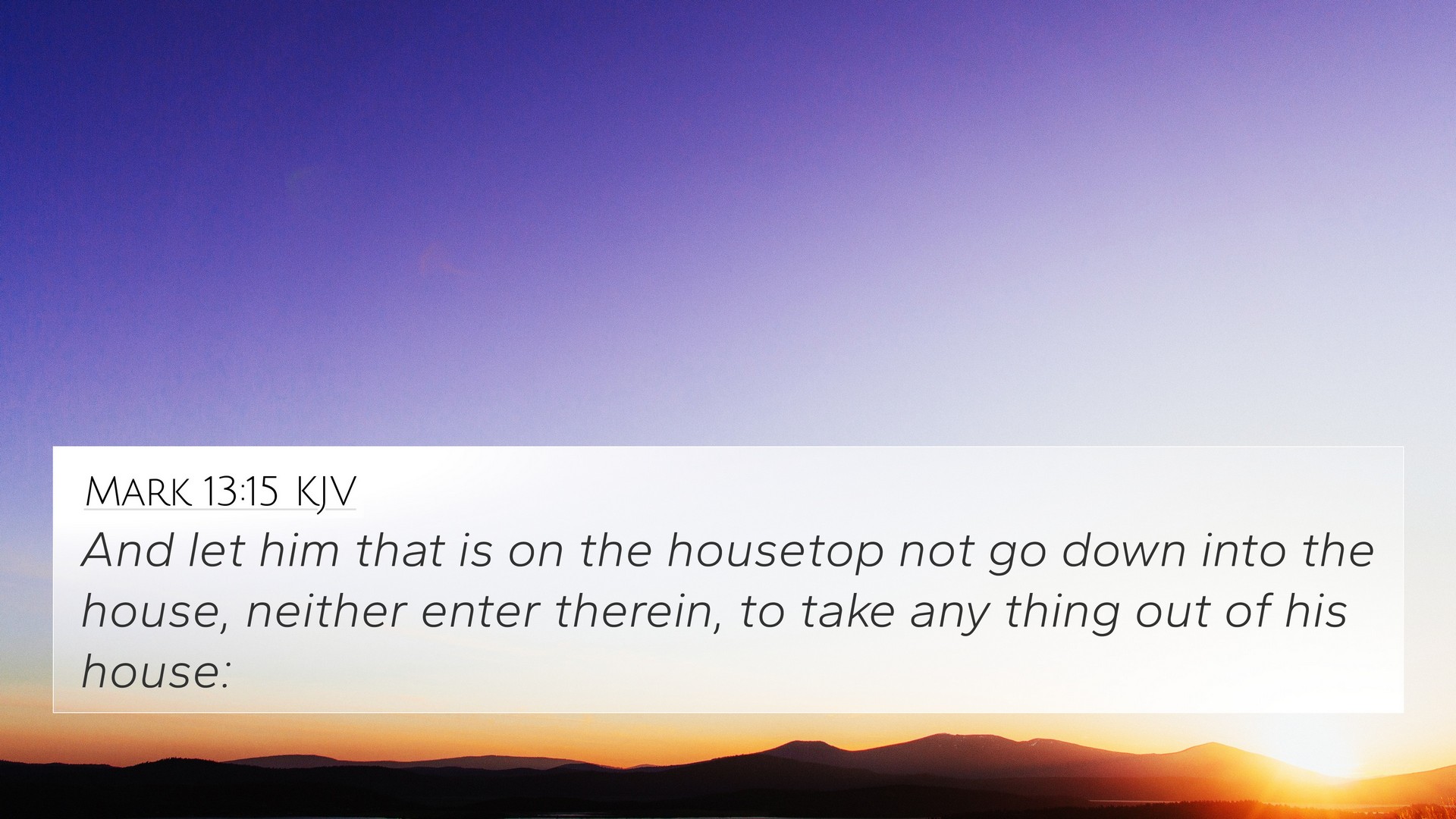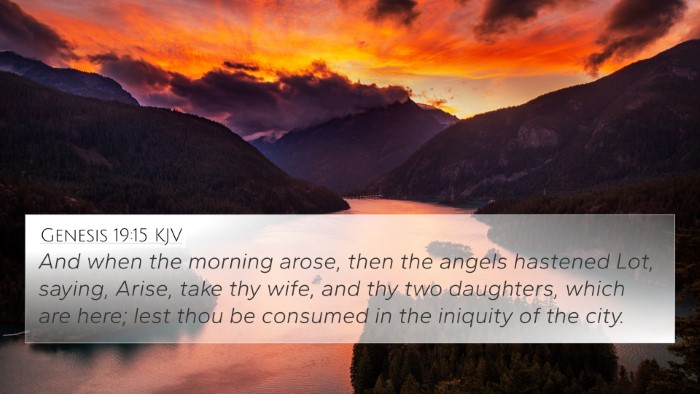Understanding Mark 13:15
Bible Verse: Mark 13:15 - "And let him that is on the housetop not go down into the house, neither enter therein, to take any thing out of his house."
Meaning and Interpretation
This verse is part of Jesus' prophetic discourse concerning the destruction of the Temple and the signs of the end times. The urgency conveyed in this passage highlights the need for preparedness and immediate action in the face of divine judgment or disaster.
Contextual Insights
In the broader context of Mark 13, also known as the Olivet Discourse, Jesus is warning His followers about the forthcoming tribulations that will mark the end of the age. Here, we gather the thoughts from various public domain commentaries on the significance of this specific verse:
-
Matthew Henry:
Henry emphasizes the immediacy of the situation portrayed. He interprets this as a call to leave earthly comforts behind when faced with God's exigency. The directive not to retrieve possessions symbolizes the urgency of faith over worldly attachments.
-
Albert Barnes:
Barnes provides insights into the historical and theological implications of Jesus' warning. He notes that such a sudden departure underscores the catastrophic nature of the events to come, prompting believers to rely on their faith rather than their material possessions.
-
Adam Clarke:
Clarke expands on the notion of being spiritually vigilant. He asserts the importance of being prepared for unexpected trials, suggesting that those who hesitate to act in faith may miss the opportunity for divine protection.
Cross-References and Related Verses
Mark 13:15 is thematically linked to several other passages that emphasize vigilance, readiness, and the prioritization of spiritual realities over physical concerns:
- Matthew 24:17-18 - Similar instruction related to fleeing from danger without returning for possessions.
- Luke 17:31 - Emphasizes leaving everything behind when divine intervention necessitates immediate action.
- Revelation 18:4 - Calls for God's people to come out of Babylon, symbolizing the need to forsake worldly ties for spiritual safety.
- 1 John 2:15-17 - Admonishes against loving the world and its possessions, reinforcing the mindset of prioritizing spirituality.
- Philippians 3:20 - Reminds believers that their citizenship is in heaven, urging a focus on eternal matters.
- Hebrews 12:1-2 - Encourages running the race of faith, laying aside weight and sin that hinders spiritual progress.
- 2 Peter 3:10-12 - Speaks to the ultimate destruction of earthly things, urging believers to live holy lives in expectation of the day of the Lord.
Thematic Connections
The themes presented in Mark 13:15 resonate throughout scripture, linking back to the necessity of being prepared for the unexpected interventions of God while nurturing one's spiritual life over material concerns. By examining cross-references, we see a cohesive theme regarding readiness for divine action:
- Urgency in faith: Time spent clinging to worldly goods may cost believers their divine protection.
- Spiritual over material: Highlighting the transient nature of physical possessions in light of spiritual eternal truths.
- Preparedness for judgment: A consistent call throughout scripture to be ready for God’s actions.
Practical Applications
Understanding Mark 13:15 equips believers with vital insights for their spiritual journey:
- Prioritize Faith: Ensure your spiritual life takes precedence over material possessions.
- Stay Alert: Cultivate an attitude of vigilance, being ever ready for God’s work in the world.
- Act Quickly: When prompted by the Holy Spirit, respond without hesitation, knowing the gravity of divine expectations.
Conclusion
Mark 13:15 serves as a profound reminder of the importance of immediacy and priority in the spiritual life of a believer. By integrating insights from renowned commentators and connecting to relevant scriptures, readers can better grasp the urgency and significance of Jesus' teachings regarding preparedness in the face of divine actions.
Through these connections and reflections, one becomes attuned to the broader narrative of scripture and the essential message of placing divine will over earthly attachments.














